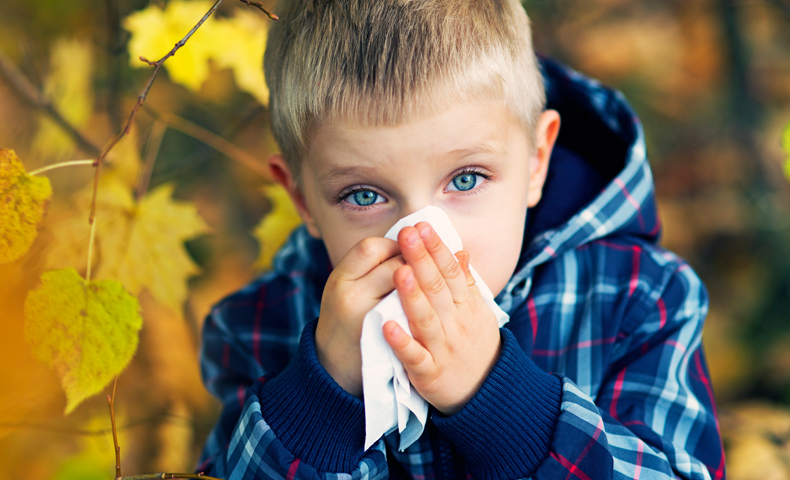
If your child is sneezing and sniffling and has a runny nose, it could be seasonal allergies or it could be a cold. Read about how to tell the difference and what you can do to help your child get relief.
About seasonal allergies
Allergies are when your body’s immune system tries to fight off substances (doctors call them “allergens”) that are otherwise harmless. Seasonal allergies, also known as hay fever, are when your symptoms are triggered by allergens that are in the environment during certain times of the year, such as tree, grass or weed pollen, or mold spores.
Children can develop seasonal allergies at any age. Allergies tend to run in families, but your child can develop them even if no one else in the family has them.
Signs of seasonal allergies in children
Here are some of the symptoms seasonal allergies can cause:
- Sneezing
- Sniffling
- Runny nose
- Stuffy nose
- Itchy, watery eyes
- Itchy nose or throat
- Headache
- Coughing
Since many of these are also signs of a cold, it can be hard to tell the difference. But here are some clues that could mean allergies are the cause:
- Your child has cold-like symptoms that last more than one to two weeks.
- The symptoms tend to occur at the same time every year.
- Your child’s nose runs with a clear, thin fluid. (A thicker nasal discharge is more typical of a cold.)
- Your child has itching in their eyes, ears, nose, or throat. (Colds don’t usually cause itching.)
- Your child’s temperature is normal. (Allergies don’t cause fever.)
Asthma and allergies
Asthma is a chronic condition in which the airways to the lungs are swollen and easily irritated. Often, children with asthma also have allergies — and, in fact, coming into contact with allergens is a frequent cause of asthma attacks. So, if your child has wheezing or shortness of breath, those could be asthma symptoms that have been triggered by allergies.
How to help your child get relief from seasonal allergies
The first step is identifying what your child is allergic to. Your child’s doctor may be able to make a diagnosis by asking questions about what symptoms your child has, as well as when, where and how often they occur. In some cases, the doctor might recommend seeing an allergist for testing to zero in on the exact allergy triggers.
Seasonal allergies can’t be cured, but they can be managed. Here are some ways to prevent and treat your child’s symptoms:
- Keep your child indoors during their allergy season(s). The timing will depend on what substances your child is allergic to and where you live. Trees, grasses and weeds all release their pollens, and molds release their spores at different times of year, depending on the climate. Check local weather resources to find out the pollen counts in your area.
- Make your home an allergen-free zone. Keep windows closed and use an air conditioner if possible. Encourage your child to shower and change clothing after coming in from outdoors. Keep in mind that pets can bring allergens in from outside as well.
- Try over-the-counter medications. These may include antihistamines, decongestants, and/or corticosteroid nasal sprays. Ask a doctor which type of medication is best for your child’s symptoms, when and how often to give it and what side effects to look out for.
- Talk with your child’s doctor about allergy shots if other treatments don’t help. If your child’s symptoms are severe and hard to control, their doctor might recommend allergy shots (also called immunotherapy). In this treatment, your child will be given regular injections of gradually increasing amounts of an allergen, which can reduce their immune system’s sensitivity to that allergen over time.
If you have questions about your child’s symptoms or treatment, talk with a LiveHealth Online doctor today. Doctors are available 24/7 and can provide answers, a treatment plan and prescriptions if needed.
Recommended Posts


